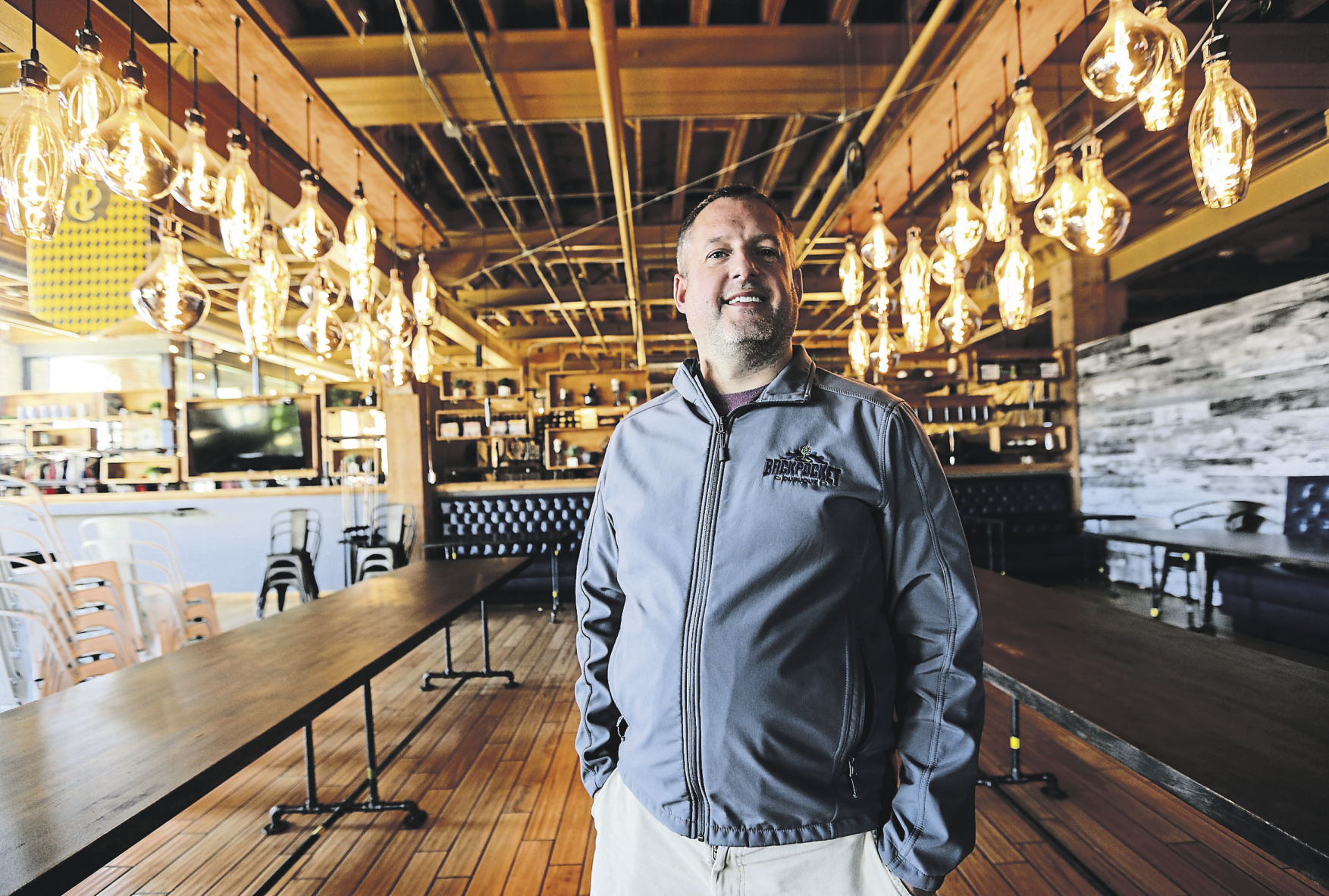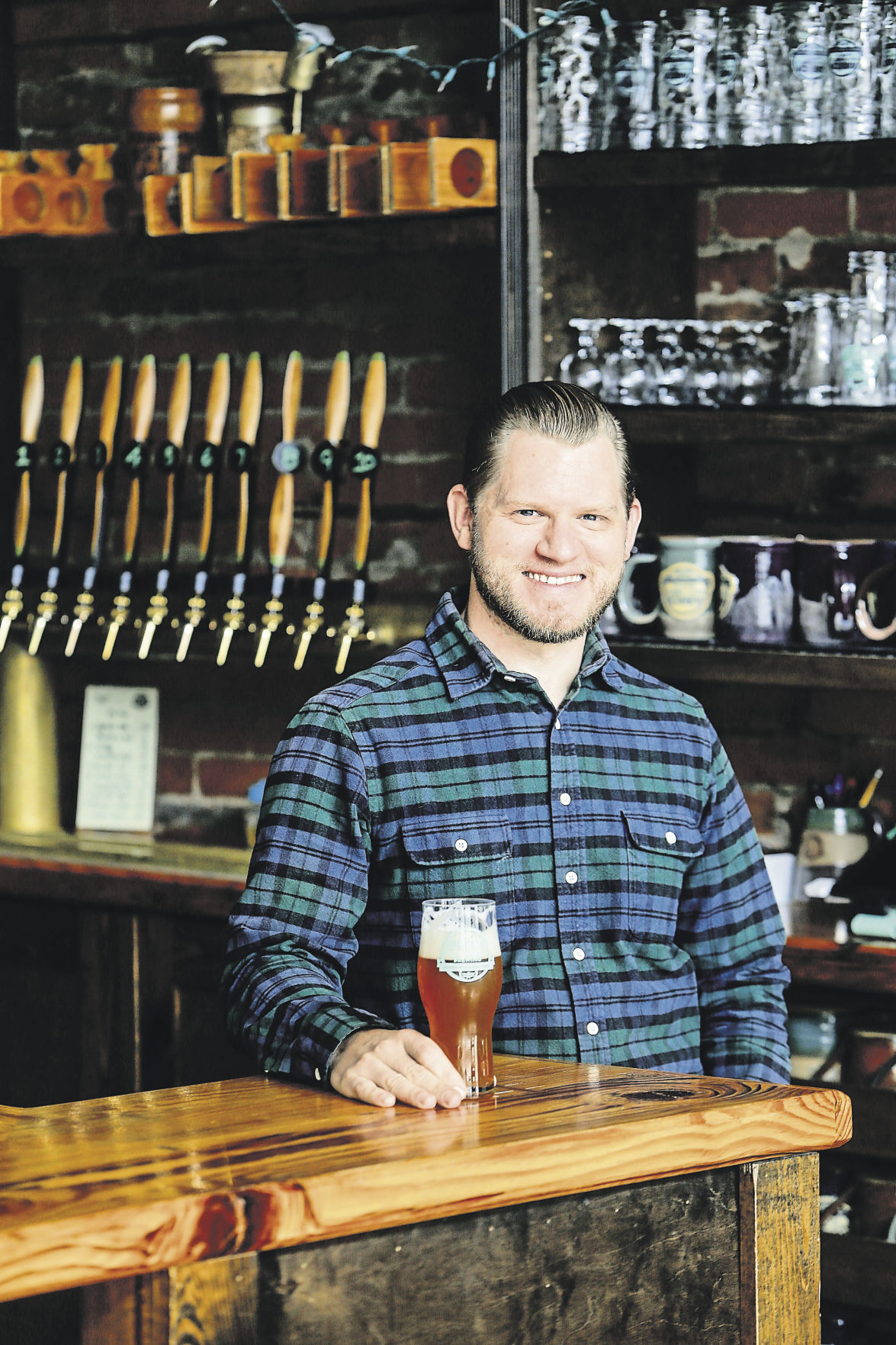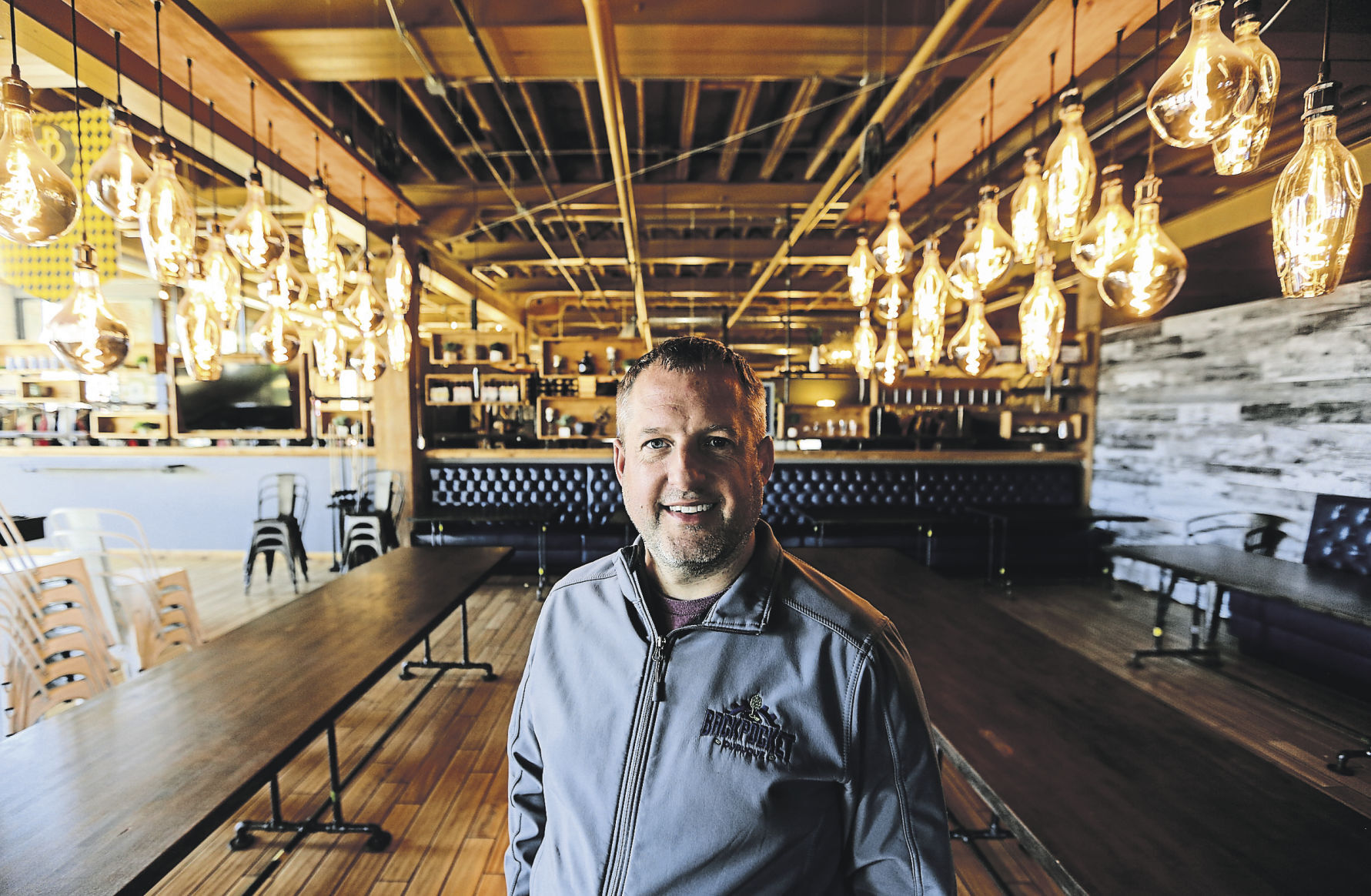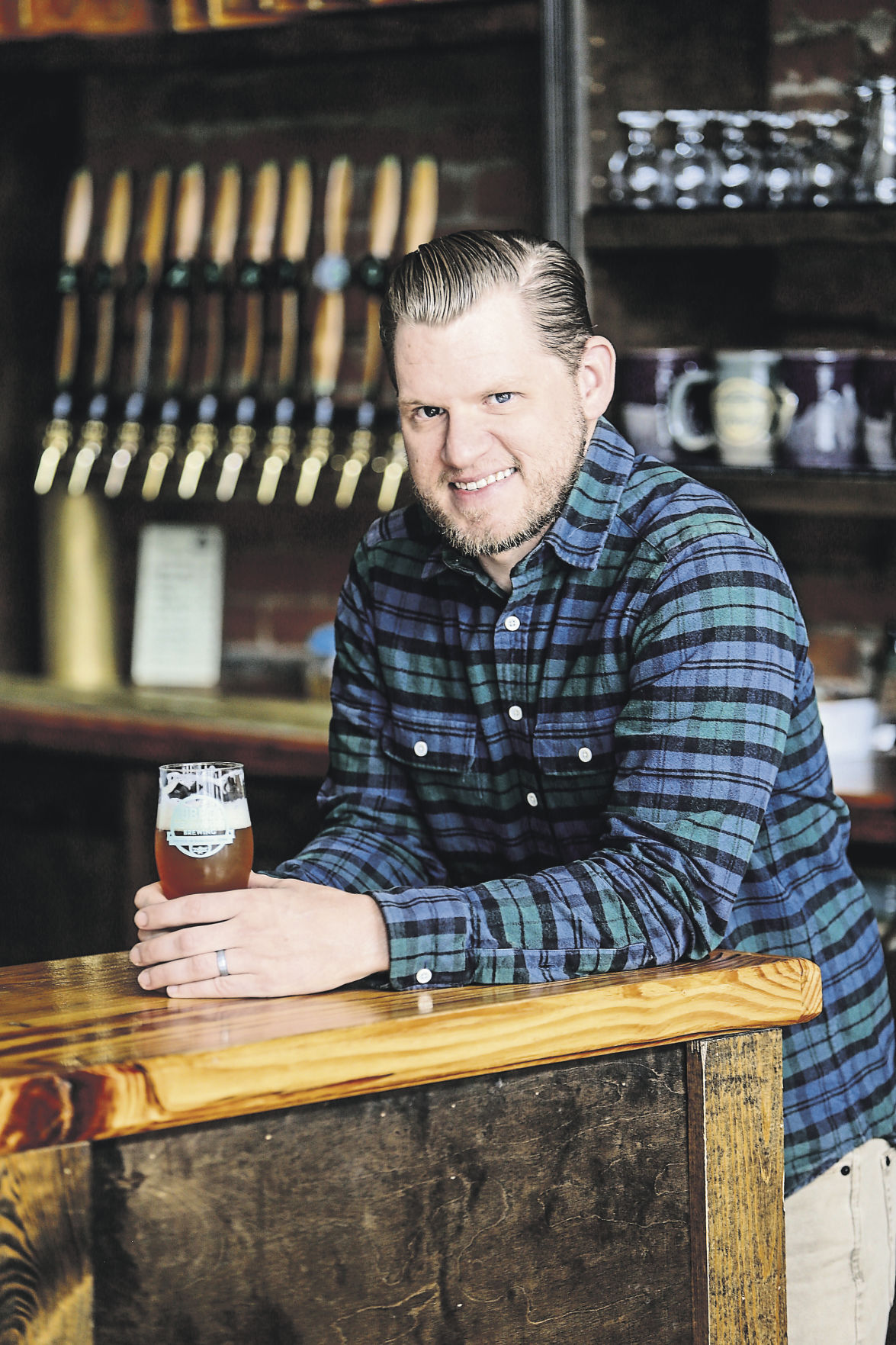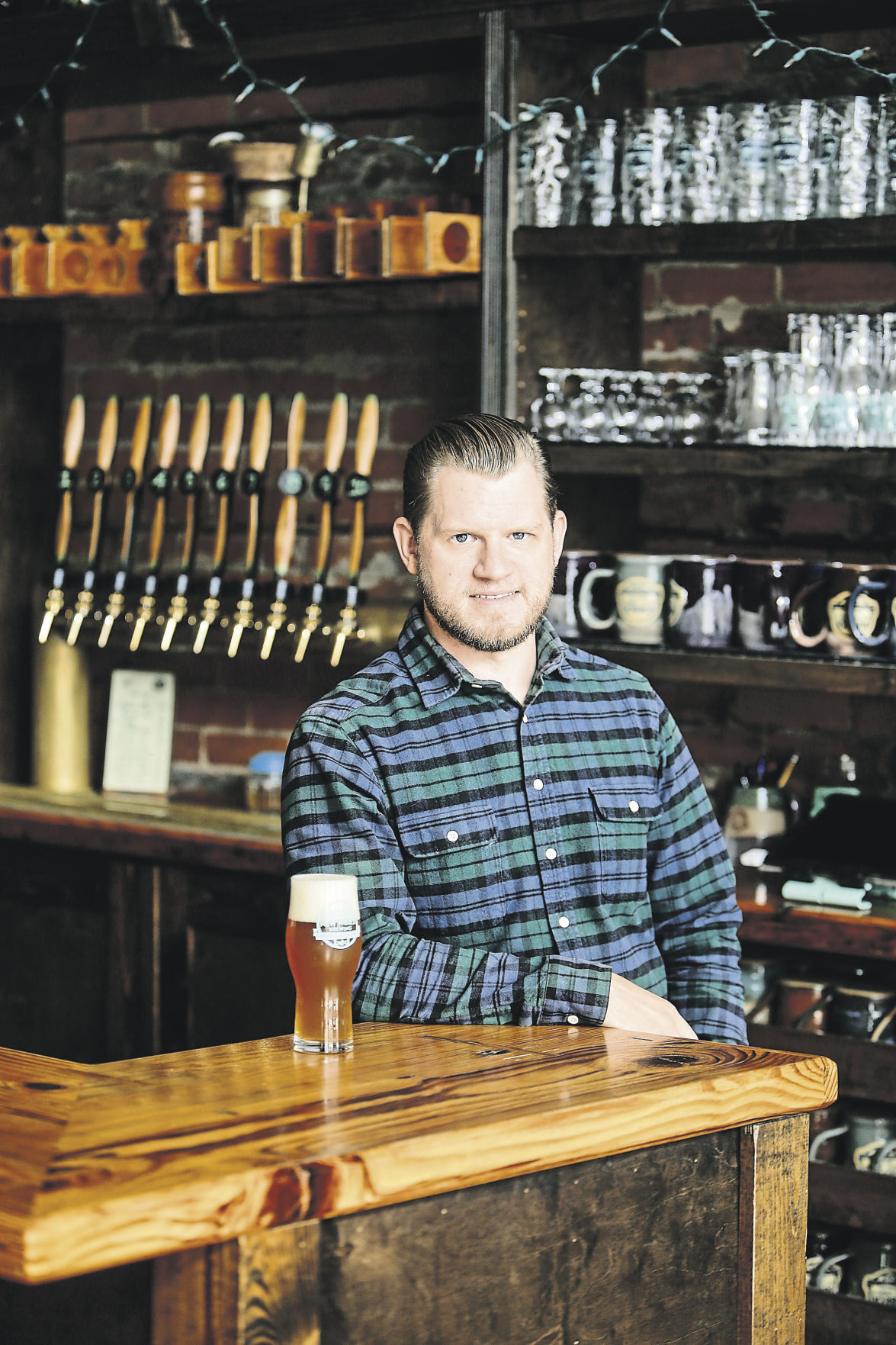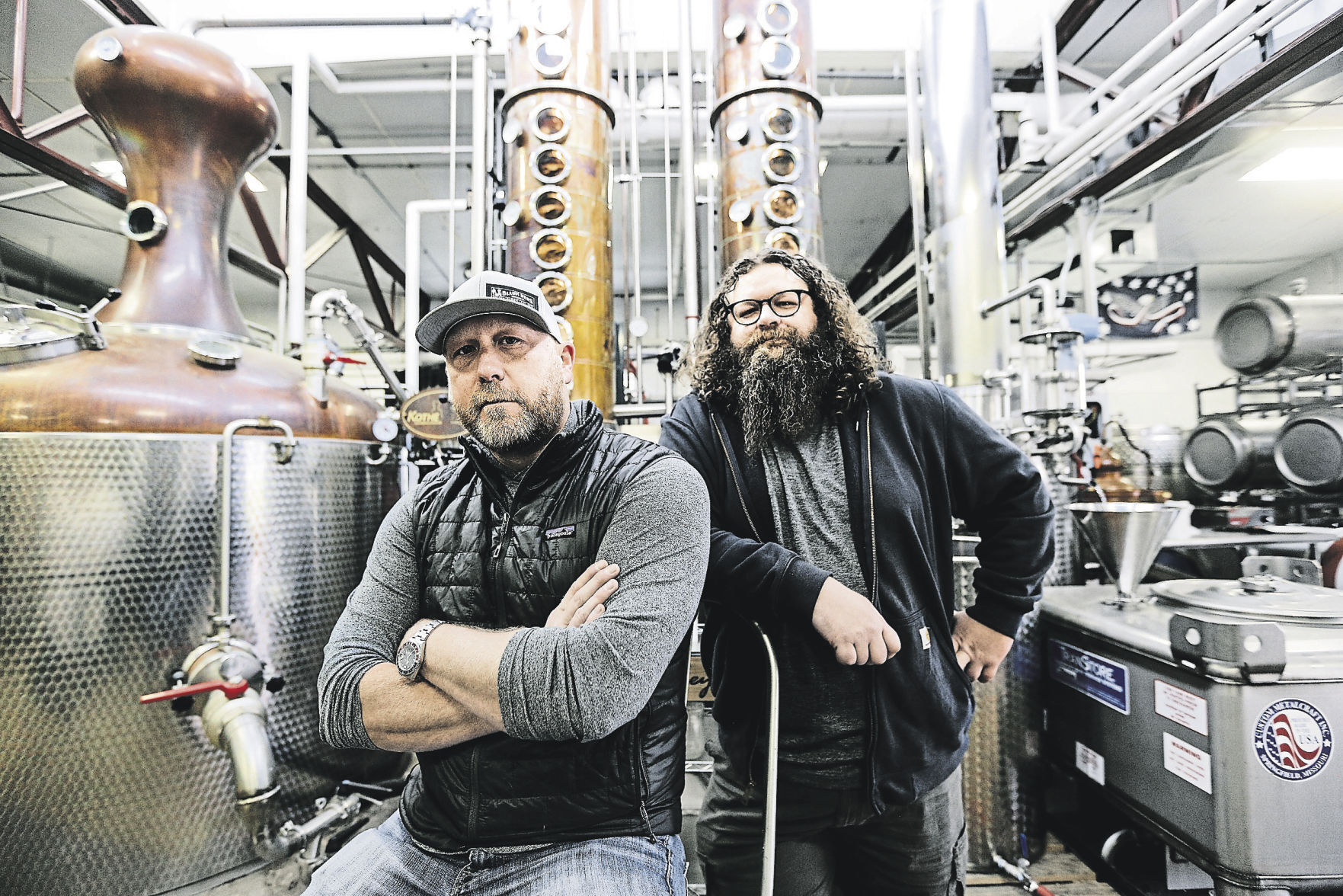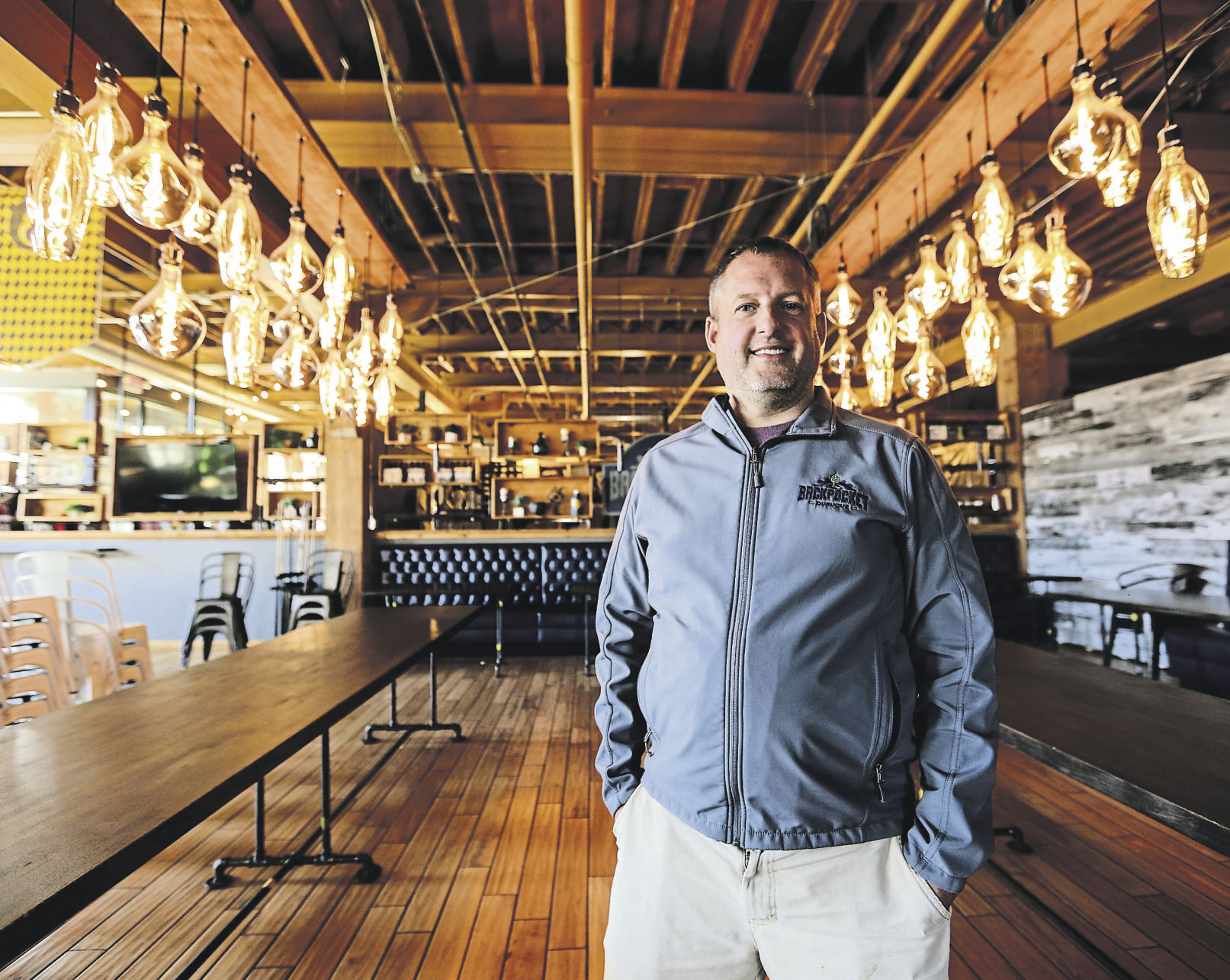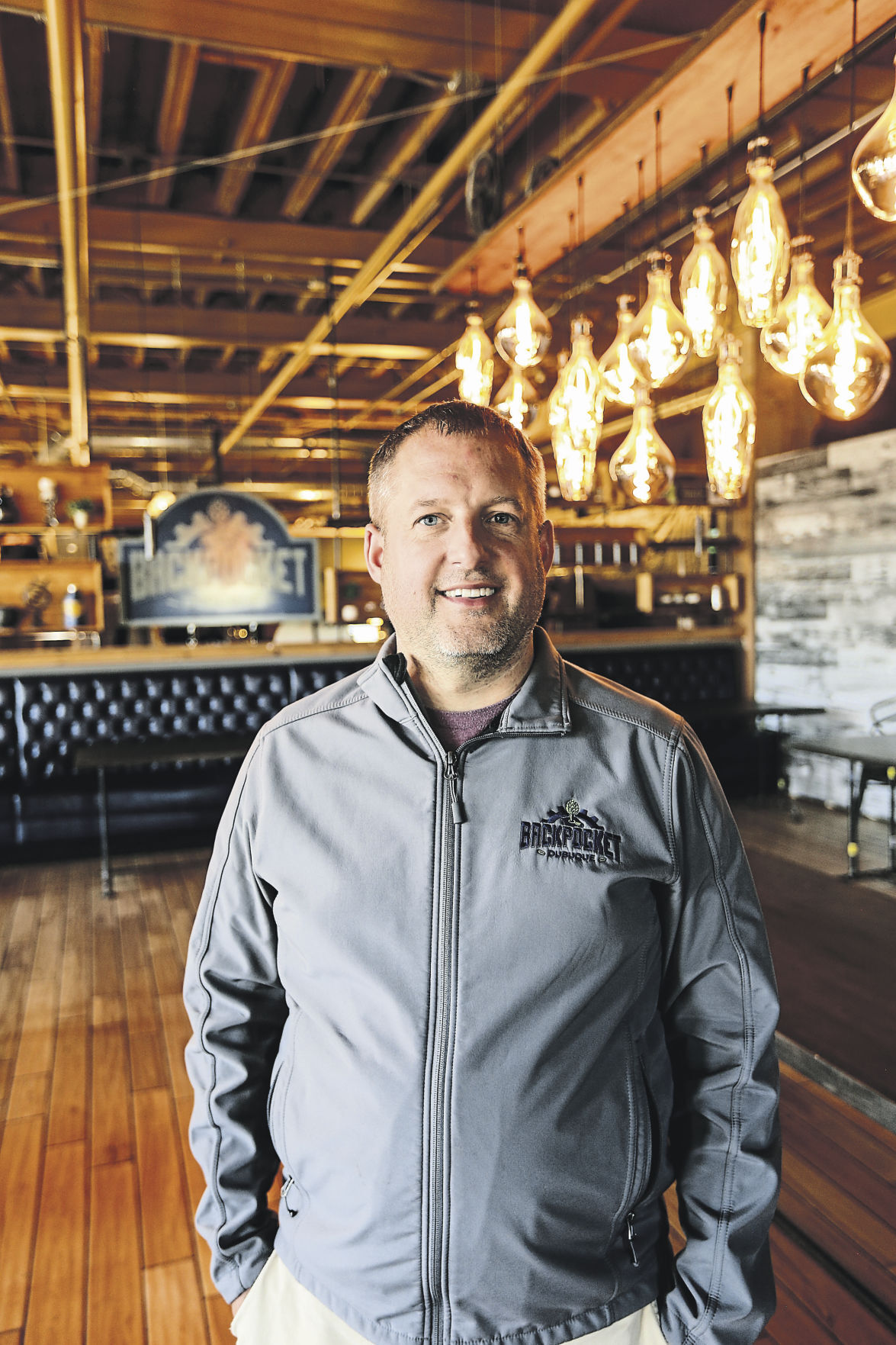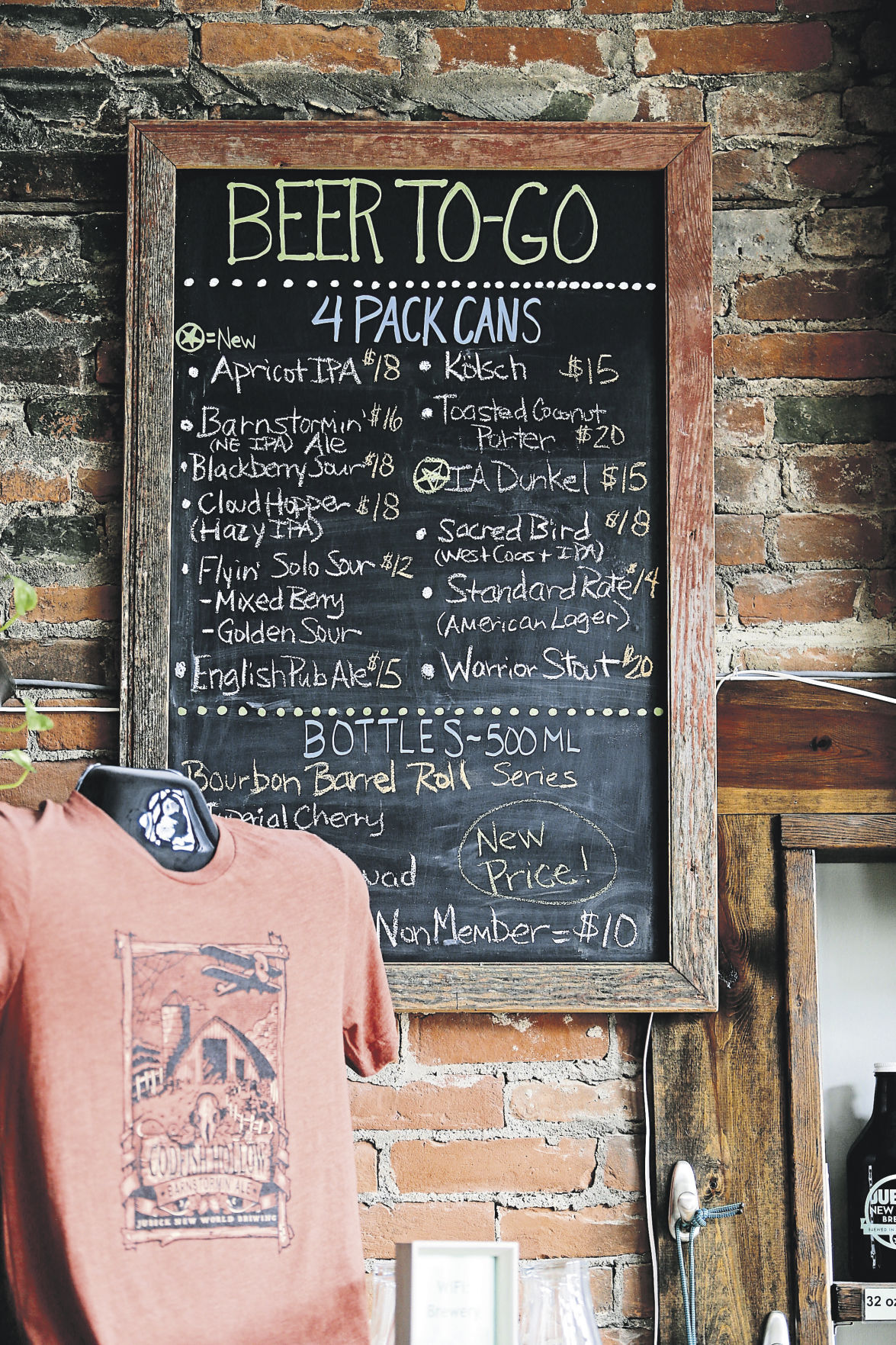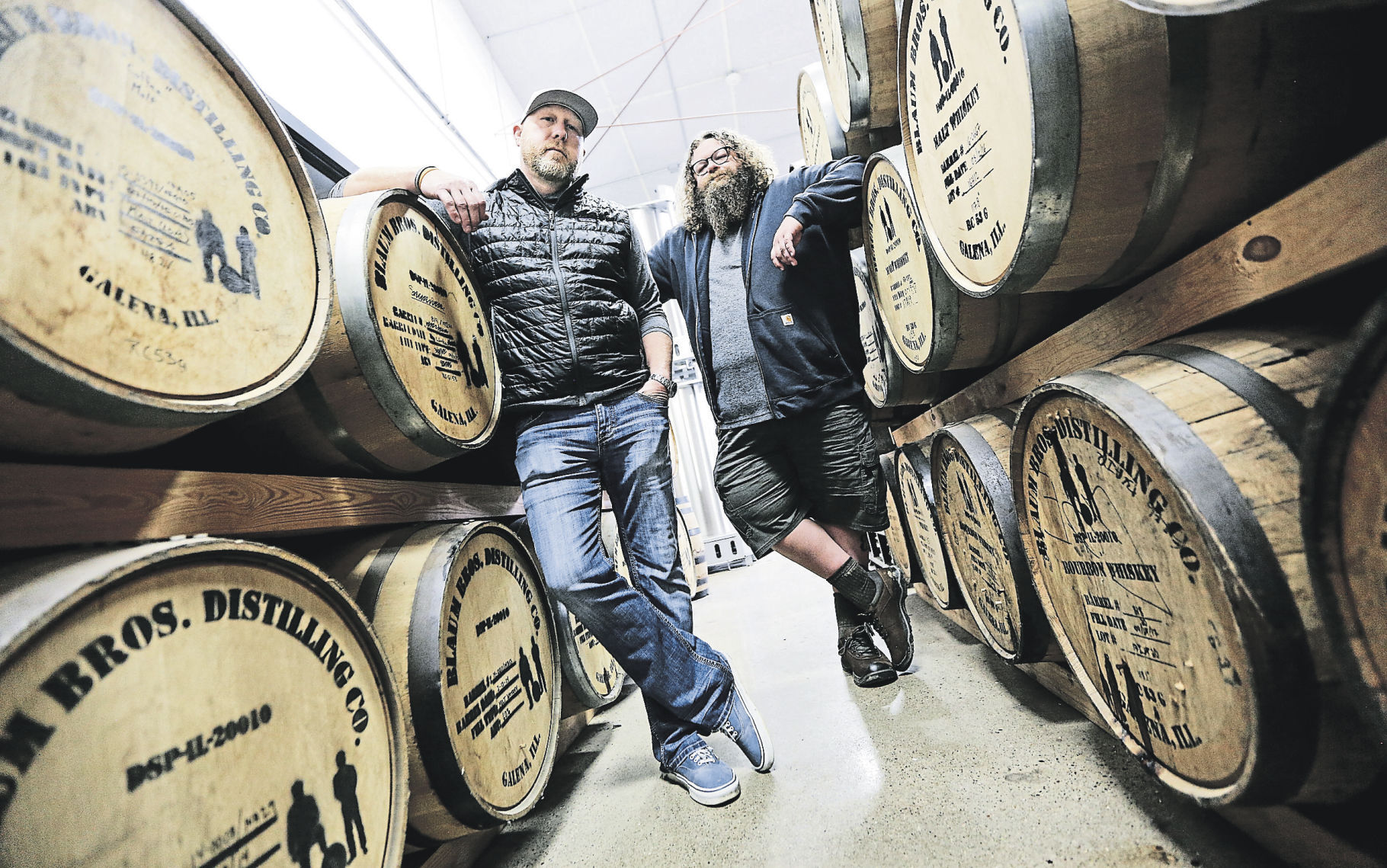State Number of Craft Breweries, 2020 Number of Craft Breweries, 2019 Rank of Craft Breweries Among US States Barrels of Craft Beer Produced Per Year Rank of Barrels Produced Among US States Economic Impact (2019 Statistics) Rank of Economic Impact Among US States
Illinois 295 284 13 394,765 16 $3,376,000 7
Iowa 107 105 17 143,022 32 $1,085,000 23
Wisconsin 224 205 15 761,535 11 $2,379,000 11
Source: brewersassociation.org
When Jay Jubeck and Dan Caraway opened Jubeck New World Brewing in July 2014, the menu of six tap beers was written on a flattened cardboard box.
Today, Jubeck is expanding his business into an adjacent space that previously housed a bar.
“The enthusiastic and unflagging support of the community fueled the growth of the business. Membership renewal funds in the Community Supported Brewery program were used to make important upgrades to the brewing system,” Jubeck said.
Jubeck had the vision to create a welcoming, social space and brew consistently great beer while experimenting with new styles and recipes.
“Our customers tell us how much they appreciate the unique atmosphere that’s been created here.”
Unlike other breweries, there are no TVs. Instead, vintage tunes play on the record player and soft lighting makes this the perfect place to relax.
But, like other breweries, the pandemic changed the way Jubeck did business.
“In April, 2020, we shifted our production focus into canning. We now plan to continue offering Jubeck Beer in cans permanently.”
Jubeck added that many events, including their Sunday sing-alongs, had to be canceled because of social distancing requirements. He’s looking forward to starting up the sing-alongs in the near future.
Overall, Jubeck said his 2021 sales have been “pretty decent,” after seeing a huge drop in revenue in 2020. Revenue dropped 30% from 2019 to 2020. So far, 2021 revenue is up almost 50% over 2020.
Sobering brewing statistics
According to the Brewers Association, small and independent brewers collectively produced 23.1 million barrels of beer in 2020, a 9% decline from 2019. The retail dollar value was estimated at $22.2 billion, a 22% decline from 2019.
Draught sales were down more than 40% in 2020 due to the fact that restaurants, breweries and bars weren’t open for several months during the pandemic.
Scaling back, moving forward
Jacob Simmons enjoys the endless possibilities of owning Backpocket Dubuque. “Hospitality is by its nature a diverse concept, as varied as the guests we serve,” Simmons said.
Backpocket opened in Dubuque in 2017, as a second location to their Coralville, Iowa, brewery. Brewing and selling German-inspired, hand-crafted beers is the specialty of Backpocket.
Simmons explained that holding events was key to the success of the brewery.
“One weekend we can offer a football themed “Hawktoberfest,” the next a Harry Potter themed Wizarding Weekend, both of course paired with beers. We’ve been able to expand first with a basement retro arcade and an event room.”
The pandemic required Backpocket to temporarily scale back many things including the events. The bright spot during the pandemic was the opening of a kitchen which was added last fall – mid-pandemic.
Backpocket has experienced record sales in the past several months by serving street tacos, wings, mac and cheese and chips with salsa, guacamole or spinach artichoke dip.
“With challenges come opportunities, a cliché, but in our case it was 100% accurate,” Simmons said. “We are currently working on rolling out new technology that allows customers to order and pay for drinks directly from their tables. The pandemic created this technology, but we think it will improve the customer experience for years to come.”
Distilling distillery statistics
The number of active craft distillers in the U.S. grew by 10.7% from 2019 to August 2020 for a total of 2,265 distilleries according to the American Craft Distillers website. The active craft distillers in the tri-states number 21 in Iowa, 55 in Illinois and 46 in Wisconsin.
In 2019, craft distillers reached $6.1 billion in sales, producing an annual growth rate of 27.1%. The number of people employed in the US craft spirits industry increased by more than 5,000 to a total of over 30,000 people.
The pandemic had a major negative impact on craft spirits producers. The majority of craft producers experienced double-digit decreases in sales during the first half of 2020 after several years of historic growth. Over 80% of US distillers were confident that they would make it through the economic downturn.
Pivoting during the pandemic
When 2020 began, Ryan Burchett had no idea that his business, Mississippi River Distilling Company would pivot to making and selling hand sanitizer instead of the usual gin, whiskey, vodka, liqueurs, cocktails and sodas.
Burchett, the owner and distiller of the Le Claire-based distillery said that shifting gears to make hand sanitizer helped to keep his staff on board and also filled a community need.
“It was a very rewarding project.”
Mississippi River Distilling was one of nine Iowa distilleries that made hand sanitizer during the pandemic. Twenty-three Illinois distilleries and 15 Wisconsin distilleries made hand sanitizer according to statistics from distilledspirits.org.
Open since 2010, the distillery uses grain sourced from farmers located within 25 miles to make all of their spirits. “We’ve loved keeping things local and growing here on the banks of the Mississippi,” Burchett said.
The business has many aspects, which Burchett explained. “We sell in stores, have our own bottle shop, we manufacturer, run our own cocktail bar and in August, we opened an 9,000 square foot “Celebration Center” in downtown Le Claire. Things are never dull around here!”
Burchett said that the biggest challenge is adapting to change. “Running a small business is always challenging no matter what you’re doing. It’s been a wild 11 years of changing laws, a growing industry and the occasional pandemic.”
The revenue at Mississippi River Distilling continues to grow each year, including through the pandemic. Burchett said 2021 will go down as a strong year for the business.
Burchett attributes the success to consumer habits which have taken a big leap.
“Many of the big consumer trends such as having cocktails and spirits at home are becoming increasingly popular which has worked in our favor. Plus, the interest in local products has never been higher.”


